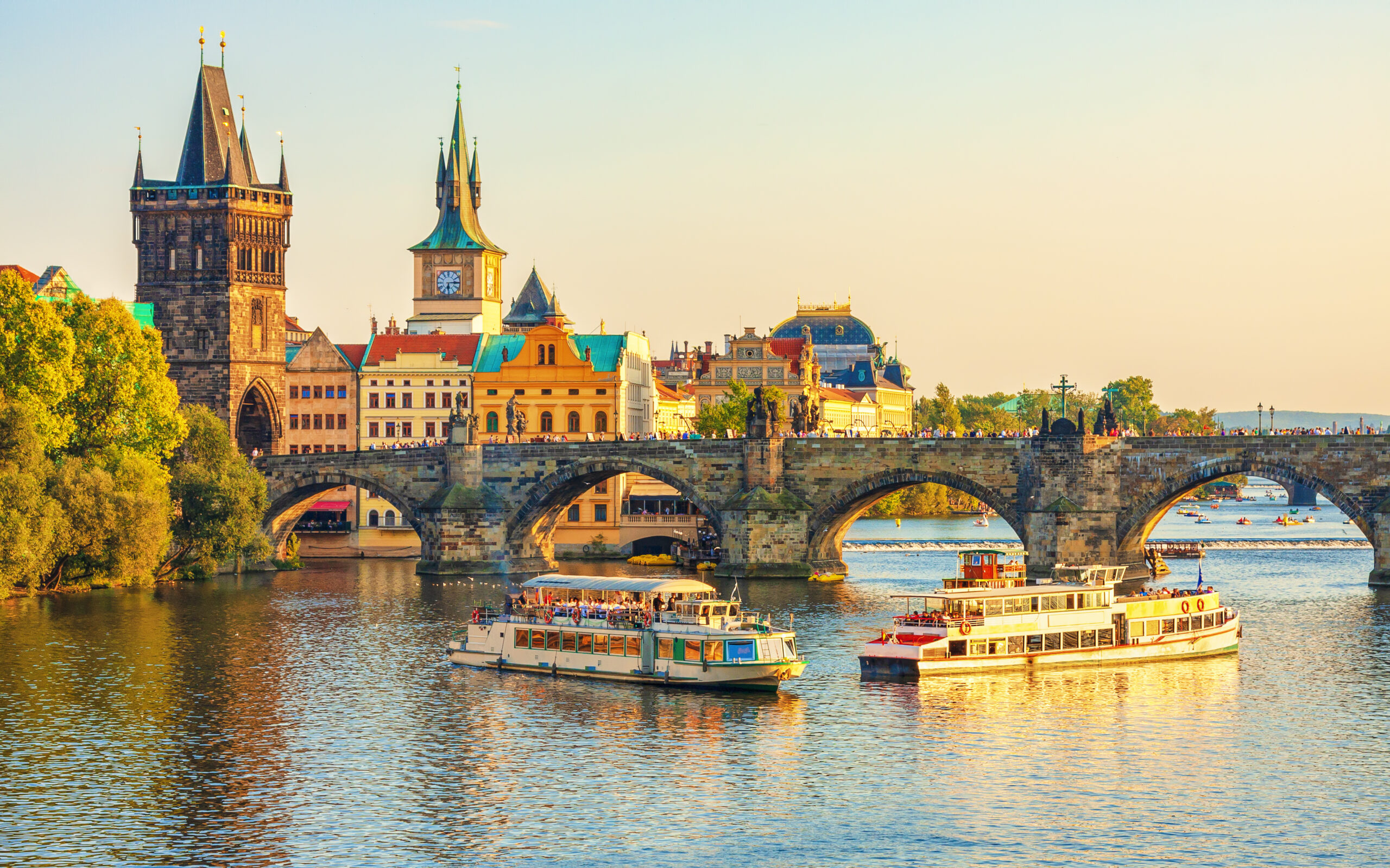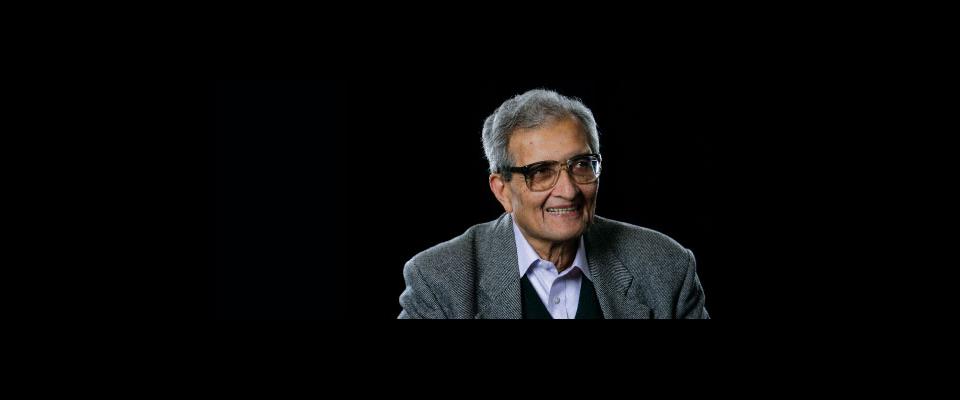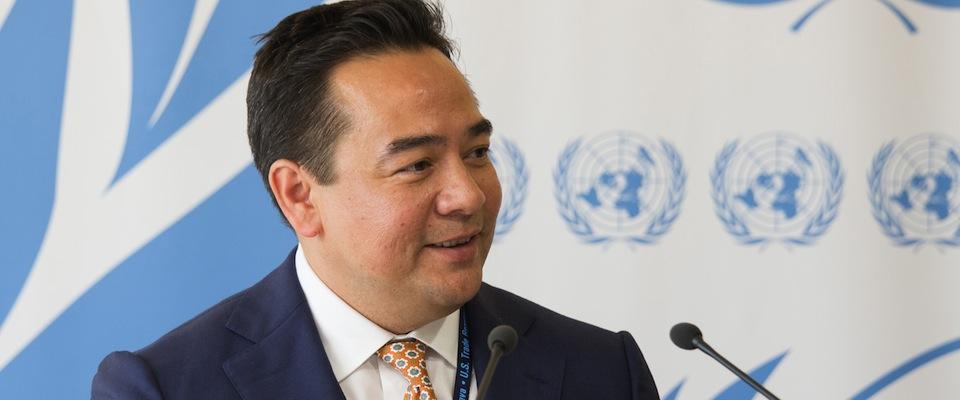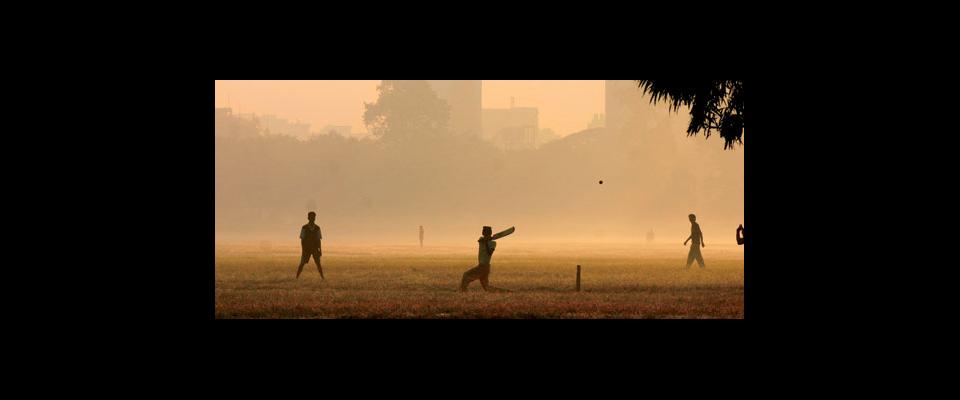The incomparable Amartya Sen on why democracy doesn’t belong to the West, the fallacy of the “moderate” Muslim, India’s atheist tradition, and other contentions.
The lives of Amartya Sen, a Nobel prize winner in economics and one of the most celebrated public intellectuals of our time, and Pranab Bardhan, a Berkeley economics professor who specializes in issues of global development and poverty, were marked by coincidence long before they became friends and colleagues. Several years apart, they both spent some of their childhoods in Santiniketan, a Bengali university town famous as the home of the Indian poet and thinker, Rabindranath Tagore. Both attended Presidency College in Calcutta, and they finally met at Cambridge University. Like Bardhan, Sen also taught at Berkeley, arriving in 1964—an intellectually seminal year for him, he says. Beyond economics, Sen and Bardhan share a broad interest in history and culture, perhaps in part, Bardhan suggests, because the Bengali language, which they and more than 200 million others speak, has spawned such a rich literary tradition. California magazine recently reunited the two friends in San Francisco for a discussion of issues raised in Sen’s most recent books, The Argumentative Indian and Identity and Violence.
Although Sen was primarily awarded the Nobel, in 1998, for highly technical and mathematical advances in social choice theory, he is more widely known as an untiring champion for ending world poverty, for mass education, health care, and women’s autonomy, and for promoting democracy and public reasoning, values that he has explicitly linked, notably in his book, Development as Freedom. Sen’s two recent books, both released within the last year, share a concern with religious and ethnic extremism, and violence.
The Argumentative Indian resurveys Indian history, finding strong traditions of tolerance, scientific and mathematical achievement, and nascent democracy, particularly in the important sense of decision making through public discussion. Sen believes Hindu nationalists (and American “clash of civilizations” theorists) distort India’s history with their singular focus on the Hindu tradition, a theme he again takes up in Identity and Violence. There he argues that the erroneous and belligerent insistence by religious and ethnic extremists that we have one, true, “discovered” identity—rather than multiple ones that we can reasonably choose among—underlies much of the world’s violence.
Pranab Bardhan (PB): Your book, The Argumentative Indian, challenges the rather naive interpretation of Indian culture in the West—that analytical reasoning is quintessentially Western, and that Indian culture is primarily concerned with spirituality and uncritical religious faith.
Amartya Sen (AS): That interpretation of Indian culture and civilization has been dominant in the West’s relation with India. When the British were first establishing themselves in the 18th century, people like William Jones and others were quite interested in Indian mathematics and astronomy, and science generally. But by the time the empire settled down, James Mill—who was very proud of the fact that he wrote his history of India without going to India at all, and who also didn’t speak any Indian language—argued that if there was anything to Indian culture, it’s just kind of spiritual, religious stuff. Whereas Jones had discussed important astronomers and mathematicians in ancient India, like Aryabhata, who rejected the prevailing view of the sun going around the earth.
PB: This is in the sixth century?
AS: He was very late fifth century—his major book was completed in ad 499. He also discussed diurnal motion of the earth and why is it that objects don’t get thrown out into space.
His students and followers, like Varahamihira and Brahmagupta, argued that every object attracted every other—early speculations on gravity. Making India the domain of religion played a part in the undermining of Indian culture. To some extent, India fell into the trap. Rather than contesting that there was quite a strong tradition of science, and also one of atheism and materialism (the earliest atheistic verses you see in the Rig Veda itself, which is around 1500 bc), they said, “Okay, the West is terrific in science, but we are very good in spirituality.” It’s something quite important to resist.
PB: But the really more dangerous oversimplification about Indian culture and history today is the creation of the Hindu chauvinists in India.
AS: I agree it’s dangerous, and a distortion. It’s not entirely unrelated to the colonial history. In some ways people had got used to the idea that India was spiritual and religion-oriented. That gave a leg up to the religious interpretation of India, despite the fact that Sanskrit had a larger atheistic literature than exists in any other classical language. Even within the Hindu tradition, there are many people who were atheist. Madhava Acharya, the remarkable 14th century philosopher, wrote this rather great book called Sarvadarshansamgraha, which discussed all the religious schools of thought within the Hindu structure. The first chapter is “Atheism”—a very strong presentation of the argument in favor of atheism and materialism. The second chapter is on Buddhism, which is treated as an offshoot of Hinduism. And then it goes through the other schools of Hinduism.
One of the things I tried to argue in The Argumentative Indian is that there’s a long tradition of philosophical argument. People ask, “Which really reflects Indian culture? Is it this or is it that?” What reflects Indian culture most are the arguments themselves, rather than any resolution in one direction or the other. The Hindu sectarian view of Indian nationalism is based on a historical misinterpretation, and then they distort history by rewriting textbooks. The religious rhetoric is exaggerated to suggest that the dominant religion is all there is in terms of the Indian cultural history. That point of view is very limited, very misleading, and indeed, wrong. Then if you add to it the nastiness of sectarian politics whereby regarding other communities to be either inferior or nasty or having treated Hindus badly in the past, like Muslim conquerors are supposed to have, then you generate needless anger and hostility. Sometimes they try to be quite nasty to other communities, and sometimes pretty violent. Some killings have occurred, especially in Gujarat in 2002 and in Bombay about a decade earlier.
PB: What is your take on cultural relativism?
AS: Where it’s most diverting is in the field of relativist ethics. It is argued: How can you criticize other countries because in their context, their ethics is the right one? That view overlooks the immensely constructive possibility of arguments that are used in the context of a debate in one culture but where the argument draws also from another. And it’s always been like that, even religion. Buddhism arose in India. It’s the only agnostic world religion. But it went out to Japan, China, Korea, all kinds of places from India. In contrast, the purely cultural relativist position would be to ask: What has a Korean or a Japanese got to learn from the Indians on Buddhism?
A similar thing can be said today. To say of some practice that’s prevalent in some countries, like stoning of adulterous woman in Afghanistan or genital mutilation in North Africa, “Look, that’s their practice, you can’t criticize,” is ridiculous. That critique may not survive even in Somalia or Afghanistan, provided a free discussion is possible, involving women as well as men, rather than dissidents being threatened or being put in jail. One of the strongest arguments that shows the weakness of the cultural relativist dismissal of dissent is the need that authorities have to put local dissidents in jail for taking a “foreign” point of view.
And there are some strong intellectual arguments for universalism. Just as Chomsky claims that our ability to use certain forms of syntax and language are present in all human beings, similarly there are a number of capacities to think on your own, if you try, that exist among different people.
PB: Some of your critics in India—and there are some, true to the argumentative tradition—have said that in this book you have indulged in the same kind of partisan selection of evidence from history that you find in others. They say that spanning more than 2,000 years, for your point about tolerance and pluralism and the inclusionary view of Indian identity, you choose figures like the Emperor Ashoka in the third century bc, Emperor Akbar of the 16th century, and then Rabindranath Tagore in the 19th/20th century. And they say that others could choose historical figures representing the opposite: orthodoxy, intolerance, etc.
AS: I am not claiming that Akbar or Ashoka represent anything like the “essential India.” My point is that they represent a very strong perspective that has come up again and again, which includes a lot of tolerance. But of course there is also a long history of extreme intolerance and nastiness. Indian culture has this variety that needs acknowledgement. Since the focus has been so much on the other side, I am using my focus as a correction. I have quite an elaborate discussion of science and mathematics in India. This is not a claim that everyone was a scientist in India. It’s a claim that that tradition exists.
When we try to draw on the past, we draw always in a selective basis. When the French and the British and the Americans were drawing on the European past in saying there is a democratic tradition, and they referred to Athens and ancient Greece—over a small number of centuries from sixth, fifth, fourth, third century BC—they were not looking at the Goths and Visigoths and Ostrogoths. Because in the context of the debate on democracy in America in the late 18th or early 19th century, the relevant reference is Athenian democracy. Ostrogoths, Vikings, and in a different way, intolerant masters of the Inquisition are no less “European” than ancient Greeks. Nevertheless, one could say if you’re looking for representative Europe, it ain’t like that.
Looking back on our history, it is not surprising that Gandhi or Nehru would emphasize those parts of the Indian tradition of public reasoning that were particularly relevant for modern India—the first poor country which chose to be an uncompromisingly democratic, multi-party state. I don’t think any of them claimed that their focus was the only tradition that existed in India.
This point is worth mentioning because there is a tendency in the West to think of something of which they approve as being a Western thought. Describing Iranian dissidents as “ambassadors of European thought” is to add insult to injury because there is also a history in Iran of democracy going back to the third century BC. And to be told that no, no, no, you are actually implants of John Stuart Mill, misdescribes the nature of Iranian dissidence.
PB: Democracy obviously has been a favorite cause of yours. Another favorite cause has been that of mass education, basic health, and women’s rights. When you combine these two sets of causes, one cannot help but notice that there could be a disjuncture, not in the realm of your ideas but in the real world of politics. The conditions of basic health and sanitation and primary and secondary education are simply appalling in India. Yet, the electorate does not penalize politicians when they fail to deliver these services. And the conditions continue to be appalling, election after election.
AS: A very interesting question, Pranab. Let me say three things. First, democracy is basically a permissive system. Some of the issues of deprivation are very easy to seize in terms of media and political opposition. Like famines. Hard to win elections after a famine. It’s hard to prevent newspapers writing editorials, unless you censor them, criticizing the government if famines occur. So these things get immediately politicized. The rest require a lot of effort. In India, the gender issue—when I first started working on it, you were one of the first to be involved in that. You wrote this great paper … what was it called?
PB: “Life and Death Questions in India.”
AS: I think you have had the same experience as I had, the people treating it as your and my amiable eccentricity that we are concerned with the gender issue. But nobody thinks like that today. If the Indian Parliament is debating today as to how to ensure that a third of the parliamentarians are women, something has changed—and changed as a result of politics, particularly the women’s movement.
One of the things I discuss in The Argumentative Indian is that despite the fact that since the economic reforms in 1979 the Chinese have grown economically much faster than India, life expectancy in India has increased about three times as fast as that in China over the last quarter century. The reason for it is not so much that the Indians are getting things right, but that the Chinese are getting things pretty bad. Earlier, because of their left-wing communist commitment to basic health care and basic education, the Chinese did a lot of very good things in terms of spreading public education and health care. Often, the health care was of a very low quality, but nevertheless, there was universal coverage. At the time of the economic reform, the Chinese did away with universal social insurance of health. One morning, simply abolished it. Rather than 100 percent of the people being covered, 70 percent, minimally, are not covered by any kind of health insurance today. You can’t imagine in a democratic country an established right of citizens could have been compromised so easily.
On top of that, people publicly grumble in India all the time. Every now and then, that confronts politicians with the need to do something, which the Chinese government does not quite have to face. By not knowing that, for example, SARS had in fact surfaced in November of one year but would not be revealed until the April of the following year, China put things in a closet, which prevents a kind of inescapable improvement that you see in India. So my second point is that the democratic critique is still, even in India, making a difference.
My third point is that democracy is primarily, as I see it, not just voting, but public reasoning, government by discussion. To initiate the discussion is a contribution to democracy. You might not have thought that your “Life and Death Questions” was a contribution to Indian democratic practice, but that’s what it was because a lot of people read it and were inspired by it and moved by it.
For years, people used to say every time I gave a lecture, “You are going on and on about democracy, but if democracy is so good, how come India doesn’t grow at all?” My answer was that economic growth depends not on the harshness of the political climate, but the friendliness of the economic climate. People don’t ask me that rhetorical question any more because India’s economic growth is quite high now. But the country is no less democratic today—it is not democracy that had to be abandoned to grow fast.
PB: But people do suggest—in the China-India comparison, for example—that your argumentative Indians are merely verbose; there is more talk, less action. They take a long time to come to a decision. In some matters of economic development, you need to make decisions quickly. In 1990, the Chinese did not have any superhighways, and now, in superhighway mileage, they are the second in the world next to the United States. Try to have a highway in India and there will be endless discussion. There will be land disputes, agitations by people who may be uprooted, they will then go to political parties, and some political party will take a position, “No, you cannot do that,” etc.
AS: There are certain things that are much easier to do in China. There if you have to uproot people to build a highway, you can build it and not worry too much about their approval. It doesn’t matter what rights they may have. If you want to make the country in such a way that autobahns could be constructed very quickly, or—as Mussolini used to claim, the trains should be run on time—if that’s the only value, then I think there is a lot of merit in giving up democracy. But if you take rights of others seriously, if you regard that citizens and their claims to their little space make a difference, then I am afraid the longer route becomes inescapable, no matter if it delays the autobahn or if the train to Rome arrives 25 minutes late. Secondly, quickness of decision is not necessarily the best recipe for good action. The Chinese, with the same rapidity as building superhighways, also abolished the universal insurance of health. In India, that would have been delayed, and would have been stopped. China executes every week more people than India has executed in its entire history since independence 60 years ago. I don’t think I want to be the citizen of a country that does things like that. I am happy enough to be a citizen of a country that discusses the rich variety of Chinese experiences in a democratic way and decides that we do want some of these things, but not others.
PB: The culture in which you and I grew up, the Bengali culture, is suffused with the ideas of Tagore, but the rest of the world—and even the rest of India—are more familiar with the ideas of Gandhi. What were their different views of India?
AS: Tagore is, of course, immensely known in Bangladesh and in parts of India in a way that he is not anywhere else in the world. Gandhi, because of politics being a more communicable process, also because of his influence on Martin Luther King and Mandela and others, has a much bigger set of admirers.
They both were extremely keen on a nonsectarian India. I think both would have approved—I flatter myself in thinking—of my project in The Argumentative Indian. On the other hand, their traditions were different. Gandhi was much more religious in a traditional sense than Tagore was. Tagore did believe in God, but he was God-respecting, God-loving, again and again describing God as “my friend” as opposed to someone you’re really in awe of. With Gandhi, some of the God-fearingness came in. I would put him somewhere between the God-fearing part of Christianity and Tagore’s God-loving, which in a sense is a development out of the Vaishnava movement in Hinduism, as well as the influence of Sufis that came into India on the Islamic side and led to the kind of harmonious combination in the writings of Kabir and Dadu and others four or five hundred years ago. That kind of religiosity is very important for Tagore. But that’s easily combinable with science. Tagore was a great believer in science education; Gandhi was not. Their attitudes toward birth control were quite different. Tagore was in favor of family planning. Gandhi was very much against it. He was in favor of abstinence. Tagore actually has a passage where he comments on the tremendous fear of sex that Gandhiji had. I can’t say that Tagore was a great model of sexual indulgence. His wife died, of course, quite young, but it seems from all accounts that he developed some kind of a crush on a very talented Argentine woman named Victoria Ocampo. And she too fell very much in love with Tagore. But Tagore was very clumsy and tied up in his own thoughts, and it didn’t really lead to a … not only not consummation, but not to any kind of further pursuit of that relation.
PB: He was into his seventies when they became …
AS: It began earlier, but Tagore’s involvement lasted through his seventies. But now that I have entered the seventies, I don’t necessarily accept that there is something clinically wrong in having an involvement! Gandhi, of course, also remained much more of a politician than Tagore. When Tagore and Gandhi were both involved in the anti-untouchability movement in the 1930s, and the Bihar earthquake took place in 1934, in which a lot of people died, Gandhi immediately converted that into a political advantage by saying that this is God’s punishment for untouchability. It seemed like an effective argument. Tagore was appalled by it, both because he thought that introducing politics into a situation in which a lot of the people killed were children who had nothing to do with untouchability was a pretty nasty thing to do. He also thought that earthquakes have scientific causes that people should understand, about the nature of the earth and the tectonic movements. Despite the fact that Gandhi was such a moral person, he was certainly not above using very instrumentally convenient arguments for pursuing a good cause. In that sense, he emerged much more as a consequentialist than he actually, in his theory, ever revealed.
PB: Let’s end with some discussion of your new book, Identity and Violence. I’d like you to relate it to this raging debate that’s going on, both in Europe and the United States, on multiculturalism. In Europe, it’s raging because they’re discussing what to do about the radical Muslims in their midst. But it’s come up in this country as well.
AS: The new book is really concerned with the importance of the recognition that we have many different identities, and that violence is often cultivated and fomented in the world—political violence in particular—by denying all identities other than one, one belligerent identity. You’re suddenly told you are a Hutu, and Hutus hate Tutsis. And you are a Hutu exclusively. You are not a Rwandan, not an African, not a human being—identities that Tutsis also have. It’s by cultivating one single bellicose identity that violence is often fostered. I saw that as a child. You were probably a little too young, but you might have watched a little bit of the aftermath of that, of how the Hindu-Muslim identity suddenly took over from the broader identity as Indian and human being, or neighbor. The book is really about the evil of the illusion of a single identity. The subtitle of the new book is The Illusion of Destiny—the idea that somehow you have one pre-determined identity and that determines what you can do and how you should live. But, in fact, it’s up to us to determine what relative importance to attach to our different affiliations. The Rwandan could say that he is a Rwandan and a Kigalian and an African and a human being, just as he can also say, “I am a Hutu.”
Not only do terrorists, but also those who want to reduce the prevalence of terrorism, often fall for the same trap. A Muslim person has many identities. A Muslim person may have an Islamic identity. This can be very important if they are religious. But they may also have an identity as a mathematician, identity as a squash player or cricket player, identity as a conservative or a liberal or a radical in politics. Bangladesh separated from Pakistan not on grounds of religion but on grounds of language, literature, culture, and politics, secular politics. But increasingly the battle is engaged by saying, “Yes, the only way of thinking of a Muslim is in terms of Islamic identity,” and then to claim, as Prime Minister Tony Blair does, that Islam is a “religion of peace.” That is just as much of an overgeneralization as the terrorists’ statement that Islam is a religion that requires you to kill those who are opposed to Islam. There have been Muslim rulers who behaved just as the terrorists suggest. Sultan Mahmoud of Gazni, who raided India a number of times and looted and destroyed temples, killed a lot of people, was certainly a Muslim. But so was Akbar, immensely tolerant, whose codification, I believe, of minority rights and the need for public discussion had a very strong inspiring effect in the construction of Indian secularism, even democracy insofar as democracy is seen as a government by discussion. Both of them were Muslims. They shared a religion but not politics, nor their civic beliefs.
The term “moderate Muslim” is a similar confusion. You’re trying to capture in one word the moderateness of politics and moderateness of religion. But, in fact, you could be a very strongly religious Muslim and yet very moderate in politics. At the time when Mahatma Gandhi and Muhammad Ali Jinnah were debating, Gandhi was very keen on keeping religion out of political divisions. But he was deeply religious. Jinnah was very keen that religion—Islam, Hinduism, etc.—be brought into politics. But he was not a particularly good Muslim. He ate pork, he drank whiskey, and so on.
The tragedy is that it’s not only those who instigate violence, but also those trying to fight that violence, who get imprisoned by that impoverished idea that we have one principal, unchosen identity over which we have no command. The need for choice and responsibility, along with clarity of ideas, deserves greater recognition. It can even help to build peace.
From the July August 2006 Indo Chic issue of California.





















